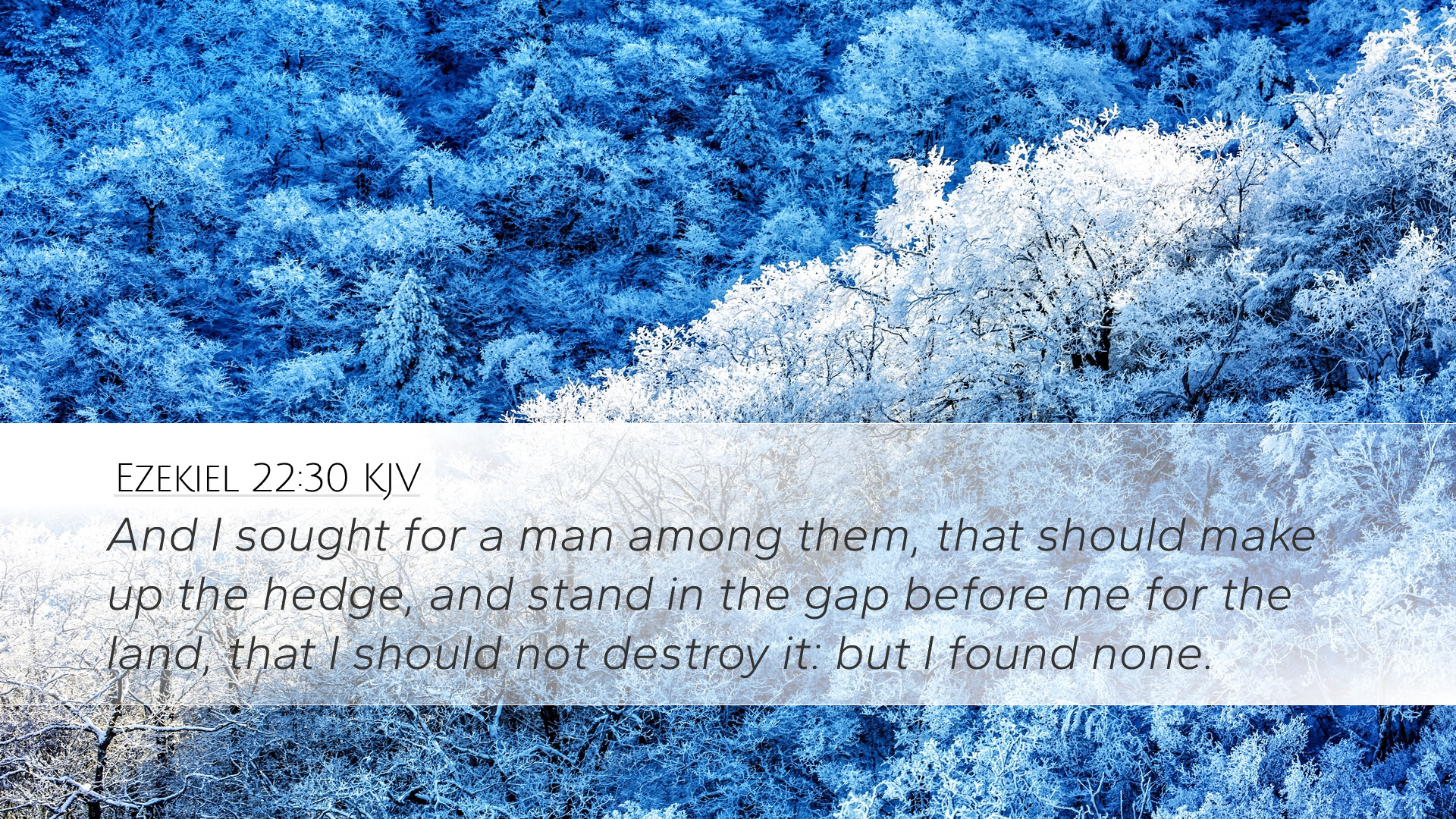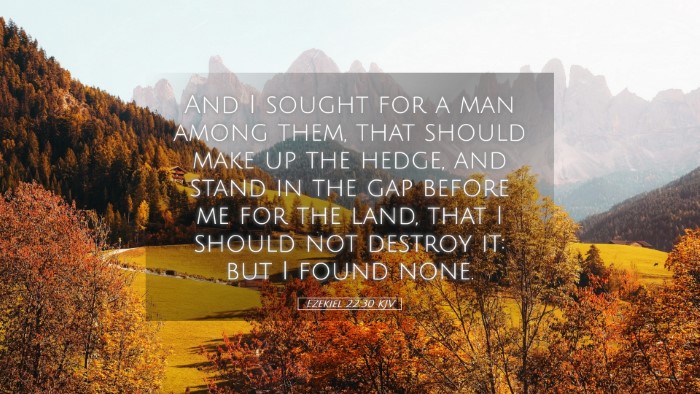Ezekiel 22:30 - A Call for Intercession
Verse Context: Ezekiel 22:30 states, "And I sought for a man among them, that should make up the hedge, and stand in the gap before me for the land, that I should not destroy it: but I found none." This verse presents a profound insight into God's search for intercessors in times of moral and spiritual decay.
Understanding the Text
The verse sets a vivid picture of God actively seeking someone to intercede for His people. This search indicates God's desire not to destroy but to save. It reflects His mercy and patience, emphasizing the role of human agency in divine interactions.
Historical Context
Ezekiel prophesied during a tumultuous period in Israel's history, around the time of the Babylonian exile. The nation was steeped in sin, and God's judgment loomed. In this setting, the lack of faithful leaders and intercessors highlights the moral decay of the people.
Theological Implications
This passage invites profound theological reflection on the nature of God as a just and merciful being. It raises questions about divine sovereignty and human responsibility.
1. Divine Justice and Mercy
Matthew Henry notes that God's inquiry for a man signifies the divine longing for repentance and restoration rather than immediate judgment. His search illustrates the balance between justice (destruction for sin) and mercy (the opportunity for intercession).
2. The Role of Intercessors
Albert Barnes emphasizes that God's search for a man to stand in the gap reflects the critical importance of intercession. In a time of widespread sin, a single person's prayer could have profound impacts, suggesting that God is willing to withhold judgment for the sake of the righteous.
- Intercessory Prayer: This illustrates the power and necessity of prayer. The faithful prayers of a few can lead to the reprieve of many.
- Corporate Responsibility: It highlights the collective responsibility of believers in upholding righteousness, demonstrating that individual faithfulness can influence the community.
3. The Absence of Righteousness
Adam Clarke comments on the unfortunate reality that God "found none." This absence speaks volumes about the prevailing spiritual apathy and corruption of the time. It serves as a warning for future generations about the dangers of complacency in faith.
Practical Applications
This verse serves as a call to action for modern believers. It challenges pastors, students, and scholars alike to examine their role as intercessors in society.
- Engage in Intercessory Prayer: Believers are encouraged to take on the mantle of intercessors for their communities, nations, and the world at large.
- Promote Righteousness: As the body of Christ, the church is reminded to uphold righteousness, ensuring that the next generation is not left without faithful examples.
- Awareness of Spiritual Decay: The passage encourages a critical awareness of spiritual decay within the church and society, prompting proactive measures of reform and revival.
Conclusion
The depths of Ezekiel 22:30 reveal God's heart for His people—a heart yearning for connection, intercession, and mercy. For pastors and theologians, this passage underscores the significant role they play in the spiritual landscape today. It reminds the church of its duty to be vigilant and engaged in prayer and righteousness, standing in the gap for those in need of God’s grace and mercy.


